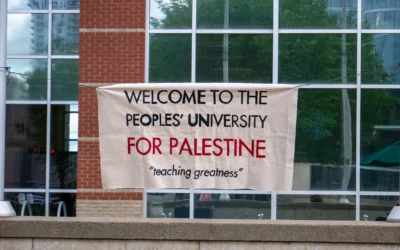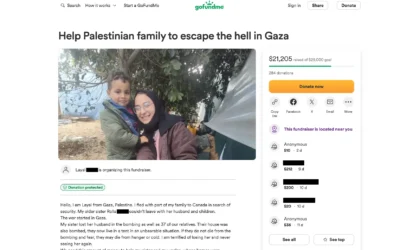MacEwan International has many programs that can give students the opportunity to study within or outside of Canada at other universities. So how exactly can you access this information if you’re interested in seeing what’s available or learning more about studying abroad? Well, MacEwan International has a website dedicated to providing you with all the information you may need. They also have an office on the first floor of Building 7, adjacent to the staircase.
MacEwan University has partnerships with many universities around the world, and depending on your area of study, you can find a program that works for you at an international university through these partnerships. The best way to evaluate what you need to do to access these programs and achieve your goals is to speak with a MacEwan International advisor who will guide you through the process and help you decide what direction to take.
I interviewed MacEwan student Ace Sindico, who is in his final year of the bachelor of communications program. I asked him to share his experience with the study abroad program. Sindico went to Hanze University in the Netherlands for his exchange, where he was in the medialism program.
Where did you travel to?
Ace Sindico: I travelled to Groningen, the Netherlands. It’s three hours north of Amsterdam, and most people that live there are students. It’s one of the places that got liberated by the Canadians, and a lot of Dutch people liked the fact that I was Canadian, so they thought very highly of me just because of where I was from.
Note: “Groningen was a battle honour granted to Canadian units participating in actions to liberate the town of Groningen from April 14-18, 1945 as part of the final phase of the North-West Europe campaign in the Second World War.”Source link
How did you find the experience of signing up?
AC: I thought it was very extensive but very clear. I think it’s important for it to be extensive as it’s not an easy thing to do.
How was it living in another country?
AC: It was a big culture shock for me because I’ve always lived in Edmonton; specifically, I grew up on the north side of Edmonton. In Groningen, I lived in a student house with over 300 international students who were all on an exchange in Groningen. I was able to immerse myself and experience different cultures.
What did you learn from this experience?
AC: I learned a lot, I think the biggest thing I learned is that there is a lot more to life than what you see. I think I learned a lot about myself and the potential of who I am. Putting myself in a different country made me realize that I want more out of life. It sparked my curiosity.
What were the cultural differences?
AC: So, I think Dutch people are very blunt and very direct. People there will tell you how they feel, and it’s not that they’re being rude; it’s just how society works there. They’re a lot more laid back, and their workdays are a lot shorter. They work from 10 a.m. to 3 p.m. which means they get to spend more time with their loved ones. It’s not better or worse; it’s just different.
What are three big takeaways from the experience?
AC: I gained lifelong friends that, even with the pandemic, I have stayed friends with. During the pandemic — especially when it first happened — everyone was experiencing the same thing across the globe, so that was interesting to see how we’re all connected in that way.
I mentioned this before, but curiosity and understanding my potential (were big takeaways), now I am not as afraid to solo travel. I am a lot more adventurous, and I’m definitely more open-minded. I was comfortable, and I’ve always spoken about being elsewhere, but after the exchange, I could literally see myself living elsewhere, and it wasn’t like a pipe dream.
Would you recommend this to others?
AC: Oh yeah, 100 per cent. I actually would say I wish that it was more accessible. In other countries, studies abroad are mandatory, and governments, as well as universities, even pay you to study abroad. If there was any way to make study abroad more accessible, even to universities in the country; I think it would be worthwhile. It’s a good life experience that anyone can gain from.
As a student, what do you gain by going on such an experience?
AC: Just being in a different learning setting was huge with the difference between the Canadian education system and the Dutch education system. It’s less hierarchical, there’s a lot more interaction, and the class sizes are smaller. There’s less of an emphasis on standardized testing and more so learning for the sake of learning. In Canada, going to post-secondary is a luxury, but in a place like the Netherlands, it’s a right. Seeing that was huge, but it also led me to have reverse culture shock cause I was like, man, the school system here sucks.
What other countries would you consider traveling to?
AC: Throughout my exchange, I went to nine different countries: Italy, Germany, Switzerland, and Spain, just to name a few. I would love to travel anywhere because it’s a really cool experience. As long as I don’t die, North Korea or Siberia would be cool.
How affordable was the trip?
AC: One of the concerns people have is just the affordability of it, but there are so many ways to make it work even if you have to take a job leading up to it. There are even grants, but I just wish it was more accessible. I wish everyone could go for something like that.
The school gave me a $2,500 grant so that offset some of my costs. But generally speaking, once you get there it’s affordable because you can manage your day-to-day life. It cost a bit more than if I was just living here alone, so it can be expensive, but I think that responsibility lies on our schools and our governments to make it more affordable. Studies show that a society that has people that are well rounded will benefit and that’s why countries like India and China will send their university students to go to school here. We can take a note off of that playbook in a sense where everyone benefits from an exchange; and yes it is expensive, but the government and our schools should be able to offset that cost.
Are there any expenses that you had which you hadn’t planned for?
AC: Yes, quite a few. I didn’t think I was gonna drink and party as much so that’s one thing. Some things that I neglected were the day-to-day stuff, like paying for my laundry and paying for my bike every month, which are smaller costs.
One thing that I didn’t really think about going into (the exchange) was the fact that I needed a Dutch bank account, so registering for one was really helpful. All in all just very minuscule things;nothing too major (in terms of cost).
Was biking your main form of transportation?
AC: Yes, so in the Netherlands,people just bike everywhere. It’s actually faster to get to the centre of the city with a bike. The Netherlands is generally a flat country and biking is way cheaper than driving a car.
What was the most memorable part of the trip?
AC: It’s a tough question to answer. Those six months were such a life-changing period of my life that I can name quite a few. Honestly just bonding with my friends in my student house and becoming life-long friends with them, it’s the one thing that I didn’t expect. The friendship and connections that I made, I will always have. It’s important to recognize that for these people (exchange students from different parts of the world), English isn’t their main language, and they spent their whole lives speaking a (different) language and the fact that we were all able to come together and build bonds speaks a lot to being human. I think this experience especially allowed me to build empathy towards different people.
Ace offered some very inspiring and eye-opening insights into student travel that many students can benefit from. With the help of MacEwan International, he was able to discover much about himself and the world around him. There are many opportunities available to students, and although it may be a hectic process to get through as Ace pointed out; it is worthwhile. Feel free to visit their office sometime and ask about the opportunities they have available for students to study abroad.
This interview was edited for length and clarity.





0 Comments